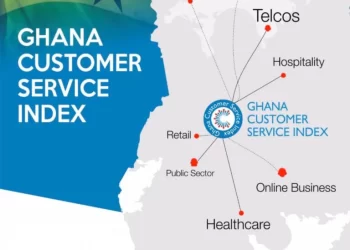The Bank of Ghana (BoG) has announced a stringent new regulatory framework aimed at reversing the worrying rise in non-performing loan (NPL) within the country’s financial system.
Under the new measures, individuals identified as wilful defaulters by regulated financial institutions (RFIs) will be barred from accessing credit facilities for up to five years and reported to the Financial Intelligence Centre.
The crackdown is part of a broader initiative to strengthen credit discipline and stabilise the banking sector, which has faced persistent challenges with loan recoveries and capital erosion due to rising bad debts.
NPLs must fall below 10% by 2026
In a decisive move, the central bank has directed banks, specialised deposit-taking institutions (SDIs), and non-bank financial institutions (NBFIs) to reduce their NPL ratios to a maximum of 10% by December 2026.
Institutions that fail to meet the threshold will face a series of regulatory sanctions, including restrictions on dividend payouts, loan book expansion, and other core business operations.
The BoG’s directive seeks to compel financial institutions to clean up their loan books and adopt more rigorous credit appraisal and recovery systems.
Tighter credit risk controls mandated
To further enforce financial discipline, the Bank of Ghana is requiring the immediate write-off of loans that have already been fully provisioned as bad.
In tandem, it is mandating all RFIs to implement robust credit risk management systems.
These include independent credit reviews, proactive loan recovery strategies, and accurate and timely reporting of credit data.
These directives, according to the BoG, are grounded in international best practices and are necessary to avert systemic risks that could undermine the health of the entire financial sector.
Public shaming and tougher penalties for insider abuses
In a bold transparency push, the BoG is ordering all regulated financial institutions to publish the names of wilful defaulters in at least two national newspapers and on their websites.
The central bank believes that this public exposure will act as a deterrent to loan default and foster greater accountability among borrowers.
Moreover, the central bank is tightening its oversight of insider lending.
Directors and shareholders found to be linked to non-performing insider loans will be disqualified from holding positions of influence in the sector and may be compelled to divest their interests.
Safeguarding stability and restoring discipline
These measures mark one of the most comprehensive regulatory efforts by the Bank of Ghana in recent years to rein in reckless lending and improve the quality of assets across the financial sector.
By holding borrowers, directors, and financial institutions accountable, the central bank aims to restore confidence, promote prudent lending, and shield the banking system from solvency threats.
The BoG maintains that without decisive action to address the root causes of loan defaults, Ghana risks a return to the instability that preceded its recent financial sector reforms.
These new rules, it says, are not only timely but essential for the long-term resilience of the financial system.














